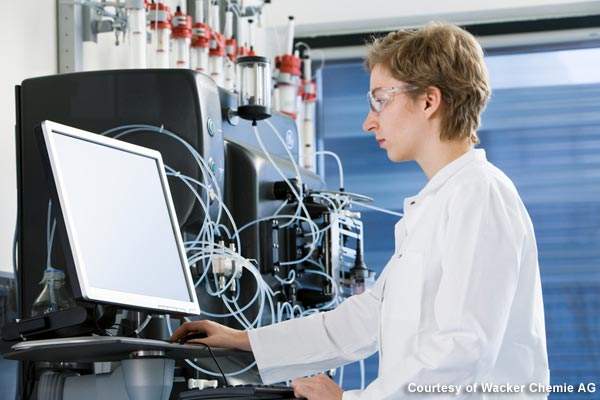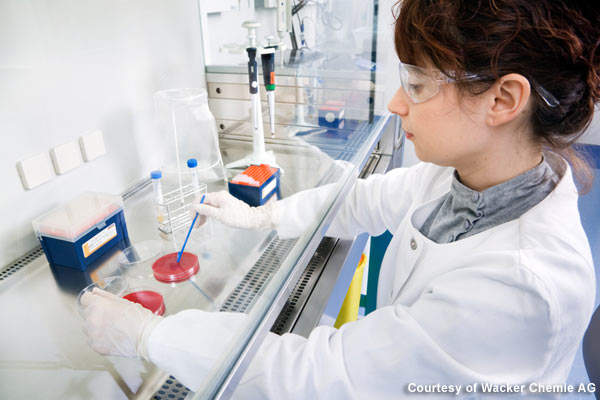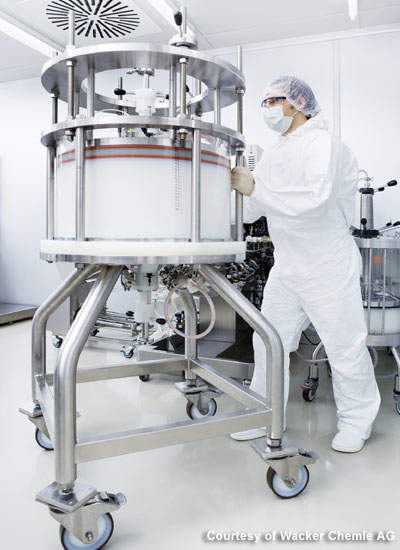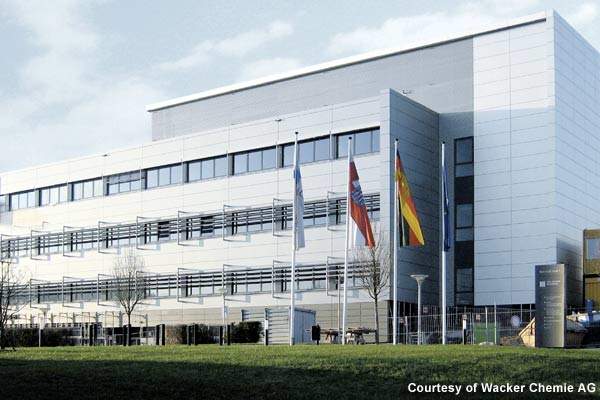Wacker Chemie inaugurated a new production facility at its Jena site on 8 March 2010. Located approximately 90km south-west of Leipzig, the facility is part of a two-phase €18m expansion. It will produce pharmaceutical proteins or biologics, enabling Wacker to expand its biotech operations.
The facility marks the beginning of full-scale operations at Wacker’s Jena site. The multi-functional site at Jena already has a downstream processing facility and a laboratory building. It has been expanded to accommodate the growing demand for high-efficiency biologics production processes and biotechnologically manufactured pharmaceuticals. In addition to the biologics facility, a new product purification facility was constructed in the second phase of the expansion.
Wacker Chemie biologics production facility
The new biologics facility is GMP-certified by both the FDA and the European Medicines Agency (EMEA). Equipped with multiple clean rooms, the facility has doubled the manufacturing space at the Jena site. The clean rooms are equipped with fermenters devoted for the development of biologics.
The GMP-certified downstream processing facility, which purifies the target active protein through chromatography, is capable of increasing product yields by three times per batch.
The laboratory building was constructed in 2009 as part of the first phase of expansion, for process development and quality control. It is spread across 1,700m². Before being scaled up to the GMP facility, the laboratory provided genes to highly pure proteins for pre-clinical development in two-digit gram quantities. It is equipped with fermenters with capacities up to 30l.
Besides the fermentation equipment, the design of all the equipment used in primary processing, downstream processing and protein modification facilitates easy scale up of the processes to the GMP production facility. The latest quality-by-design principle is incorporated across the process development.
In addition to the process laboratories, the building for process development and quality control also accommodates state-of-the-art analytical laboratories. Equipped with a complete range of analytical tools, the laboratory protects the process method development and product characterisation till the GMP analysis. It offers biochemical assays, chromatography, photometry, electrophoresis, sequencing of protein, spectroscopy and trace analysis of impurities.
Biopharmaceutical production
The facility will support GMP production of biopharmaceuticals. Biopharmaceuticals are used for the treatment of several conditions, including hepatitis, cancer and multiple sclerosis. For customers whose biopharmaceuticals development is at an advanced stage, the unit will provide commercial capacity that is sufficient to meet the market demand.
Biologics process technology
The facility will produce biologics using ESETEC® and DENSETEC®, two of Wacker’s proprietary technologies that yield high production, are simpler and more cost-efficient.
Based on the patented E.coli K12 strain, the tried and tested ESETEC® technology produces proteins, including antibody fragments. Using the E.coli K12 strain, the recombinant proteins are secreted in their original conformation into the culture fermentation broth.
During the two-step simple cell separation process, the target product is first carried along the plasma membrane through the secretory pathway into the periplasmic space. While crossing the membrane, the signal peptide is separated, releasing the natural product.
During step two, the rightly folded product is secreted from the periplasmic space into the fermentation broth from across the outer membrane. The product, which created after the soluble, natural active target product is separated from the fermentation broth, is very pure and yields are up to 11g/l.
The extra-cellular production process allows for the easy purification of the recombinant and, at the same time, prevents the expensive stage of refolding. The ESETEC technology can be combined with DENSETEC, a unique high-cell density E.coli fermentation process technology.
When combined with DENSETEC, ESETEC offers a cost-effective manufacturing system right from the beginning. Using this combination, the yield of anti-body fragment increases by 50%. High-cell dry weights of more than 50g/t and more than 100 optical densities can be achieved using this process under conditions that are strictly monitored and reproducible.







